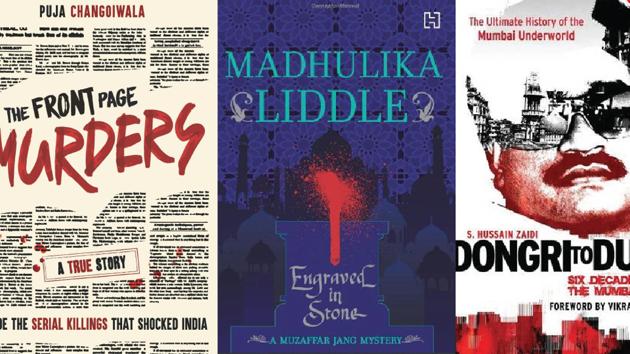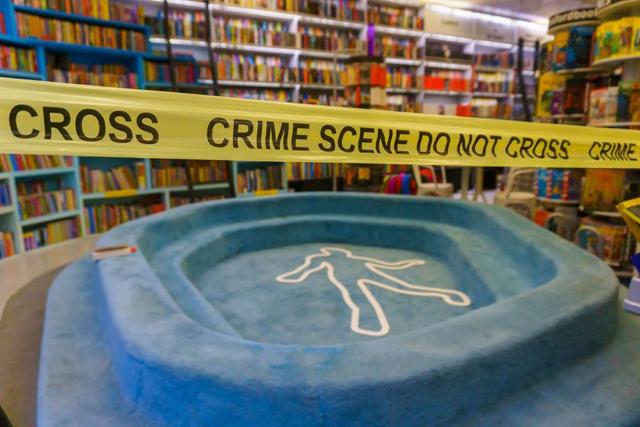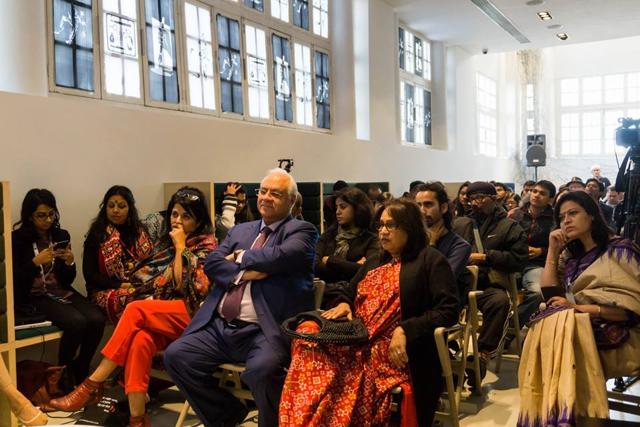A weekend with spooks at the Crime Writers Festival
Homegrown sleuths, true crime, espionage and more at the third edition of the festival
When Madhulika Liddle got a fat volume on Indian forensic procedures from her father, she already had four detective novels under her belt. Her books revolve around the adventures of Muzaffar Jang, a 17th century nobleman in Shahjahan’s Delhi who doubles as a detective.

Liddle’s father had been a policeman and the book he gave Liddle, a “guide to medical jurisprudence,” was what the police used while investigating crimes. Chilling details (how to tell the difference between a hanging and a strangling? What are the different kind of poisons available in India?) aside, Liddle found the book to be “pretty grotty” and the clues “horribly mundane.” She preferred Jang’s agile mind to forensic work.
The powers of deduction
Deduction is the key, says Liddle who is scheduled to speak about the “powers of deduction” at this weekend’s Noir Crime Writers Festival in Delhi. That’s what drew her to historical crime fiction, she says. “The (forensic) lab takes the fun out of deduction.”
Liddle is among a slew of authors who have invented memorable spooks (and series to boot): Jane De Suza’s Gulabi, a village woman who turns up in Mumbai to find a husband and instead turns into a detective; Zac O’Yeah’s shady yet likeable Hari Majestic; the upright retired Inspector Ashwin Chopra from Vaseem Khan’s Baby Ganesha Detective Agency novels; Ankush Saikia’s eccentric Arjun Arora; and Tarquin Hall’s “Most Private Investigator” Vish Puri.
These books are a sub-genre within a small but growing genre in Indian publishing: crime. Ten years back, Liddle says, most Indian publishers were reluctant to publish anything other than literary fiction. Now, that has changed. The festival, back for its third year, includes two jampacked days of conversations around crime with over 30 speakers, including novelists, journalists, lawyers and filmmakers.

The genre of genres
Publishers’ appetite for crime writing is growing, according to Mita Kapur, the festival’s co-producer. “They are all developing a good, hefty crime list,” she says, adding that the genre is still young among Indian writers in English but it has a healthy tradition in Hindi and Urdu: writers in both languages have been telling crime stories for 200 years.
But the genre isn’t short of diversity. Kapur says the festival brings together writers of true crime, white collar crime, legal and political thrillers as well as pulp novels. Last year’s edition included discussions about the fictional Bengali detective Byomkesh Bakshi, Urdu crime fiction, Agatha Christie and Hindi pulp author Surendra Mohan Pathak. “It was a cracker,” says Kapur.
And that’s just fiction. The first edition of the festival, in 2015, featured Husain Zaidi, a Mumbai-based investigative journalist who has reported, and then authored books, on the city’s mafia, chronicling the infamous life of gangsters such as Abu Salem and Dawood Ibrahim. This time around, Sandeep Unnithan, a journalist who reports on national security, joins crime novelist Uday Satpathy and Norwegian crime writer Thomas Enger to talk about the role of the journalist as “crime solver.”
Unnithan’s Black Tornado tells the story of the operation launched by India’s National Security Guard in response to the 26/11 terror attack in Mumbai. He says the book is a crucial, meticulous record of a mammoth operation that few know about, the desperate chaos that preceded it and the startling characters at the center of it all.
“Most of the time, the truth is much more bizarre than fiction,” says Unnithan whose stories of terror plots, espionage and investigation are far removed from Liddle’s charming mysteries set in Mughal Delhi. And yet, they are connected.
“It is the genre of genres,” says Namita Gokhale, writer, publisher and festival director. She believes that if you were to read across the crime writing of a culture, it will likely give you more insight than literary fiction. Given that it encompasses every aspect of life, from art to gender to money to psychology, Gokhale says, the crime writing genre is greater than the sum of its parts.

Escapist or not
How accurately does Indian crime writing capture all of those hues? “Indian crime writing is still coming of age,” says Gokhale. She says it’s too early to say if the existing work sufficiently captures the despair induced by crippled courts, shoddy investigations and alarmingly high chances of errors in conviction.
Liddle admits that a lot of crime fiction could be called “escapist,” preferring to thrill rather than disturb. Especially in the case of classic crime fiction, which focuses on the detective and ends with the arrest. “The mundane stuff and the dry stuff is culled out,” says Liddle. “It is escapist and escapist in a good way.”
The festival tries to avoid that trope by inviting people who are familiar what happens on the other side -- from arrest to prosecution to, in some cases, execution. Journalists such as Unnithan are well aware of the alleged violations involved in prosecuting terror cases. So are criminal defence lawyers such as Anup Surendranath who will appear on a panel to discuss the role of the hangman, designated by the state to execute on its behalf.
But not everyone agrees with this definition of “escapist.” Filmmaker and writer Paromita Vohra is scheduled to speak at the festival about the manner in which crimes, especially crimes against women, are covered in the media. She says it’s unfair to think of thrills as escapist and “some artificial realism approach” as being “not escapist.”
She points to the daily choice made by newspapers to play up certain crimes against women on the front page while burying others deeper in the paper, or not carrying them at all. “Who’s to say that front page coverage isn’t escaping the truth of what’s inside?”
What: Noir Literature Festival - The Art of Crime Writing
When: January 28-29, 10 am onwards
Where: Oxford Bookstore, Connaught Circus
Nearest metro station: Barakhamba Road
Entry is free. Seating is on the basis of first-come-first serve





